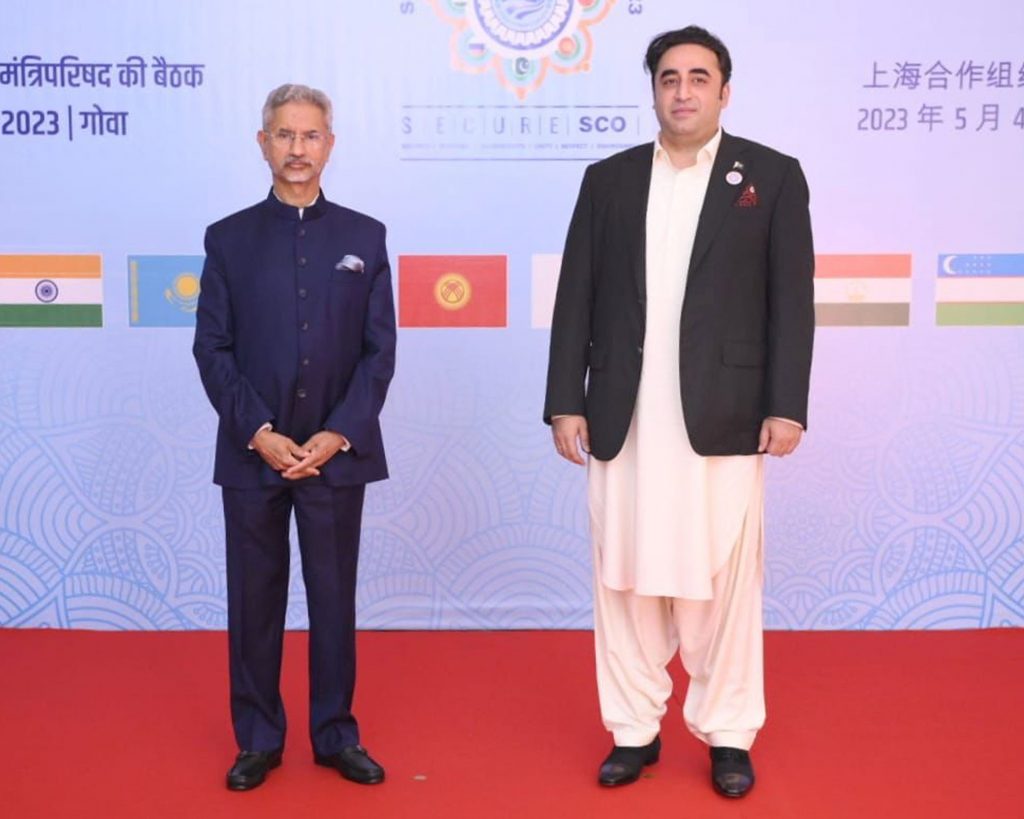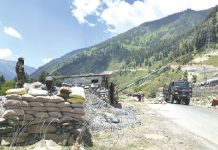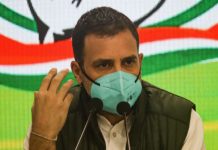
The deep seated mistrust between the two countries surfaced at the SCO meeting in Goa, where Pakistan raked up the abrogation of Article 370 in Kashmir while EAM Jaishankar called his counterpart Bilawal Bhutto a spokesperson of the terrorist industry. A report by Riaz Wani
No one expected India and Pakistan to resume dialogue at the recent Shanghai Cooperation Foreign Ministers meeting in Goa but there was an expectation that they would at least be able to break the ice. But, on the contrary, what we saw was a complete meltdown, with both sides taking an even harder line against each other.
If anything, the meeting highlighted the persisting deep-seated distrust between the two countries. External Affairs Minister S Jaishankar launched a scathing attack on his Pakistani counterpart Bilawal Bhutto Zardari, calling him a “promoter, justifier, and spokesperson of the terrorist industry.” Jaishankar also accused Pakistan of committing acts of terrorism and stated that Pakistan’s credibility “is depleting faster than its forex reserves.”
Pakistan, once again, raised the issue of the withdrawal of Article 370 and the China-Pakistan Economic Corridor. Jaishankar responded by stating that Article 370 is history.
“Wake up and smell the coffee, Article 370 is history now,” Jaishankar said.
The foreign minister also said that the so-called China Pakistan Economic Corridor violates India’s territorial integrity and its sovereignty.
The bitter exchange lasted even after the meeting was over and Bhutto-Zardari had returned to Pakistan.
Although the leaders of the two countries still have a chance to meet during the SCO summit in July, it seems unlikely that the two neighbours will get back to a normal engagement. And considering the bitterness generated by the foreign minister’s meeting, it is unlikely that the summit will be any different. More so, when both countries are already in election mode. Pakistan’s national elections are due this year unless the ruling dispensation chooses to drag its feet from the exercise, something which it is currently doing. The situation has become very complicated following the arrest of former Prime Minister Imran Khan. It has triggered massive protests across the country. The future of the country has become more uncertain. The situation is set to deteriorate further if no political resolution is achieved.
India, on the other hand, is holding its general elections in 2024 and around 10 Assembly polls are being held in the run up to the exercise. This will keep the ruling BJP largely preoccupied with campaigning, making the engagement with Pakistan, already of no consequence to the saffron party, even less important. Besides, after Bhutto-Zardari’s cold reception in India, there is a question mark over Pakistan Prime Minister Shahbaz Sharif’s visit to India in July to participate in the SCO summit. That is, if Sharif remains in power, considering the evolving situation in Pakistan.
“I think differences between India and Pakistan have become very irreconcilable now and any engagement between them will demand nothing short of a leap of faith,” said a local politician, not wanting to identify himself. “But this won’t be possible until after the elections in both the countries, if things go according to the plan.”
But despite no talks, India and Pakistan have been successful in maintaining an uneasy peace between them. In February 2021, the two countries reinstated the ceasefire along the Line of Control in a surprising development that followed just over a year after the withdrawal of the special status of Jammu and Kashmir. But the neighbours failed to build upon it and start a dialogue, probably due to their divergent positions on Kashmir. While Pakistan sought restoration of Kashmir’s special status, New Delhi wanted Islamabad to end cross-border terrorism.
Since then the situation has further transformed. Now the first prerequisite for any Indo-Pak engagement apart from their respective national elections is the stabilization in Pakistan.












